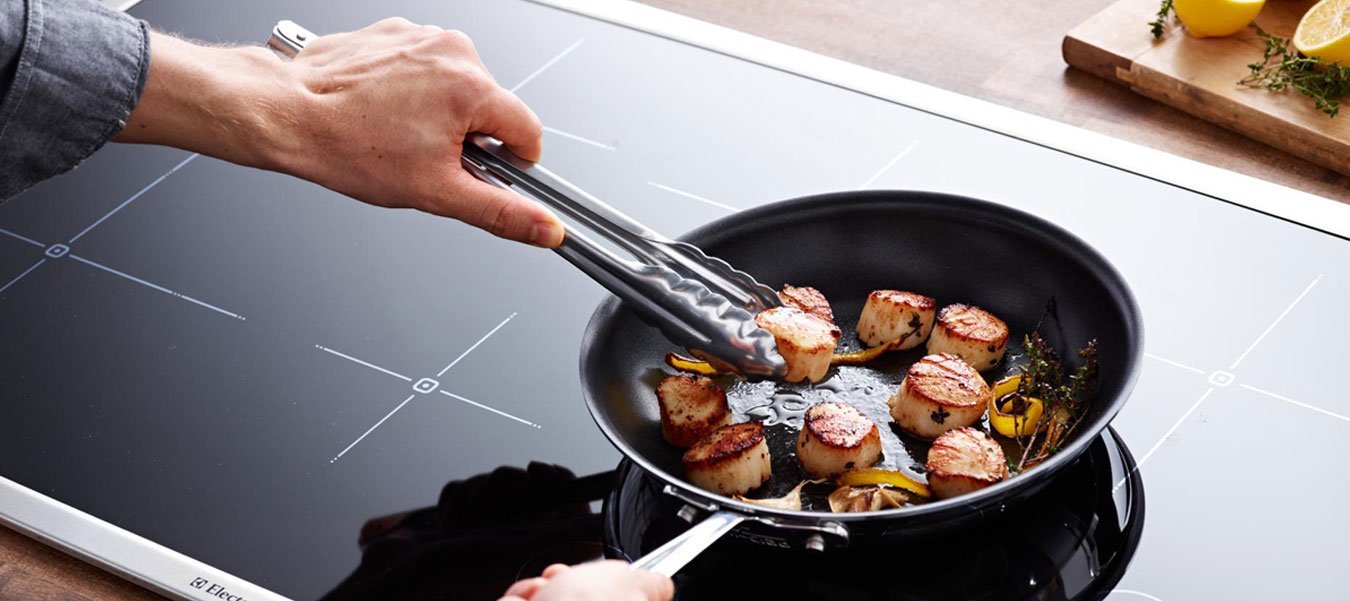For many kitchen professionals, the sound of a cast iron buzzing noise on induction cooktops can be both puzzling and irritating. You might have experienced this phenomenon while cooking, where a faint or sometimes loud buzzing accompanies the heating process. Understanding the source of this noise is crucial for ensuring your kitchen operations run smoothly and efficiently.

Why Does Cast Iron Buzz on Induction Cooktops?
Induction cooktops have revolutionized the modern kitchen with their efficiency and speed. However, they can sometimes produce unexpected noises when used with certain types of cookware, especially cast iron. The principle behind induction cooking involves creating a magnetic field that directly heats the cookware, which can lead to vibrations and noise, particularly with ferrous materials like cast iron.
The Science Behind the Buzz
The buzzing noise is generally caused by the electromagnetic fields interacting with the cast iron cookware. When the alternating current flows through the induction coil, it generates a fluctuating magnetic field. This field induces electrical currents in the ferrous material of the cast iron, causing it to heat up. However, the microscopic imperfections and variations in the thickness of the cast iron can lead to vibrations, producing the buzzing sound we hear.
Factors Influencing the Buzzing Sound
Several factors can influence the intensity and frequency of the buzzing noise. The design and thickness of the cast iron pan, the quality of the induction cooktop, and the power setting used during cooking all play a part. Thicker pans tend to buzz less due to their ability to absorb the electromagnetic energy more uniformly. Conversely, thinner or unevenly constructed pans may vibrate more intensely.
Minimizing the Noise
Kitchen professionals looking to minimize this noise can take several steps. Firstly, ensure that the cast iron cookware is of high quality and has a flat base. This ensures better contact with the induction surface and reduces vibrations. Additionally, using a lower power setting initially before increasing it gradually can help mitigate the noise. For more tips, check out cast iron cookware tips.
Impact of Buzzing on Cookware and Cooktops
While the buzzing noise itself is not harmful, it's essential to ensure that it doesn't indicate any underlying issues. Consistent loud noises might point to problems with the induction cooktop's calibration or the cookware's compatibility. It's advisable to regularly check both the cooktop and the cookware to ensure everything is functioning correctly. For more on maintaining your cookware, see cast iron cleaning.
Long-term Effects on Cast Iron
The buzzing noise does not typically affect the longevity of your cast iron pans. However, frequent exposure to fluctuating magnetic fields can, over time, cause minor wear and tear. Regular maintenance, including proper cleaning and seasoning, can help prolong the life of your cookware. Learn more about seasoning your cast iron.
How to Choose the Right Cookware for Induction
When selecting cookware for induction cooktops, it's crucial to consider the material and construction. Cast iron is a popular choice due to its excellent heat retention, but it's essential to choose pieces that are well-made and suited for induction cooking. For more insights, visit Lodge Cast Iron's guide.
Considerations for Kitchen Professionals
For kitchen professionals, investing in high-quality cast iron that is specifically designed for induction can save time and reduce noise. Additionally, regularly inspecting both the cookware and the cooktops for damage or wear can prevent issues from arising. For further reading on safety, see hot handle safety.

FAQ Section
Why does cast iron make noise on induction cooktops?
The noise is due to electromagnetic fields causing vibrations in the ferrous material of the cast iron.
Does the buzzing noise damage the cookware?
No, the noise itself doesn't damage the cookware, but regular maintenance is advised.
How can I reduce the buzzing noise?
Using high-quality, flat-based cast iron and adjusting power settings can help minimize noise.





Leave a comment
This site is protected by hCaptcha and the hCaptcha Privacy Policy and Terms of Service apply.